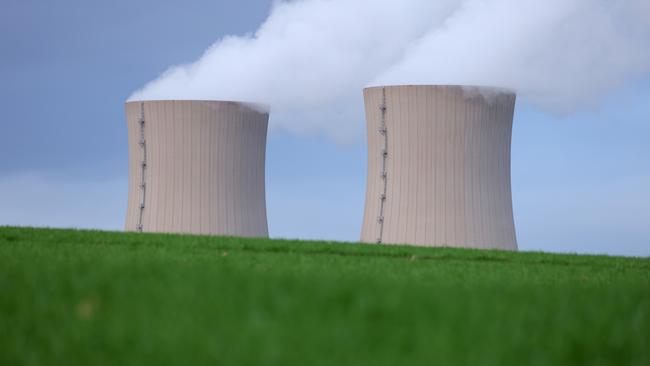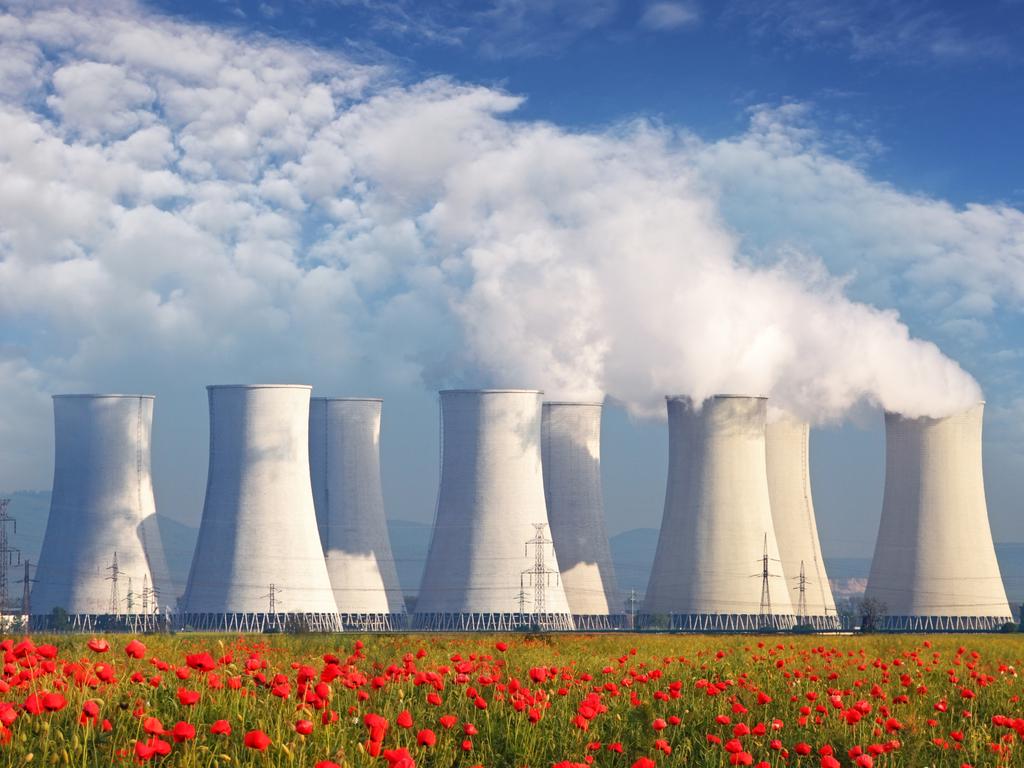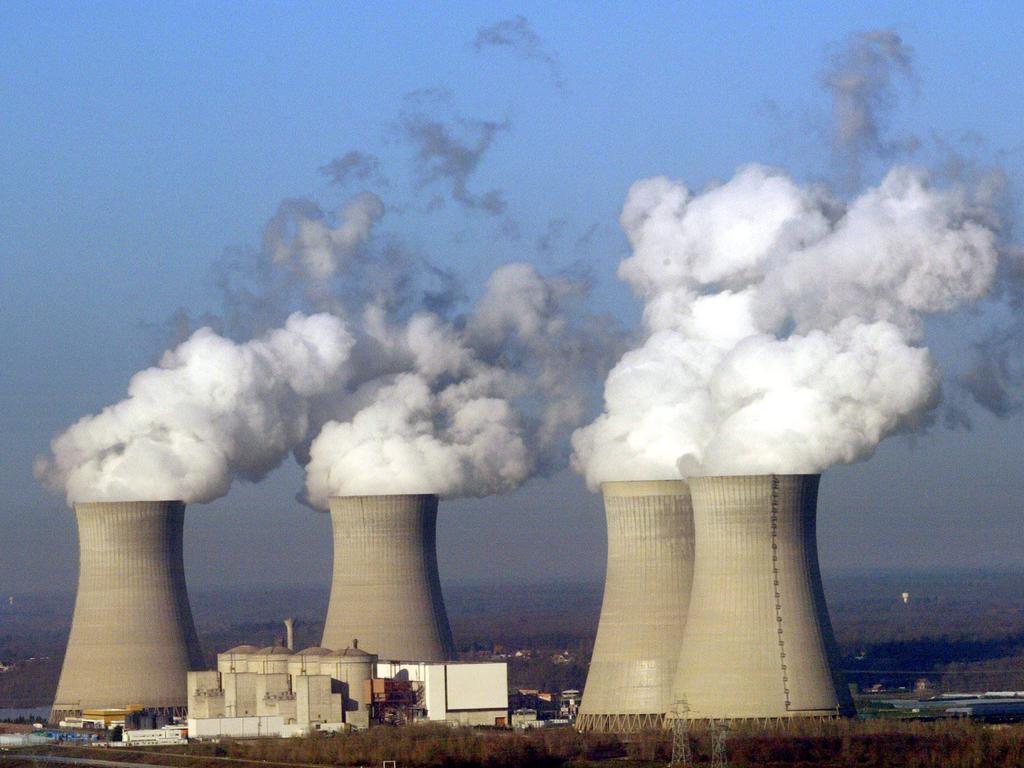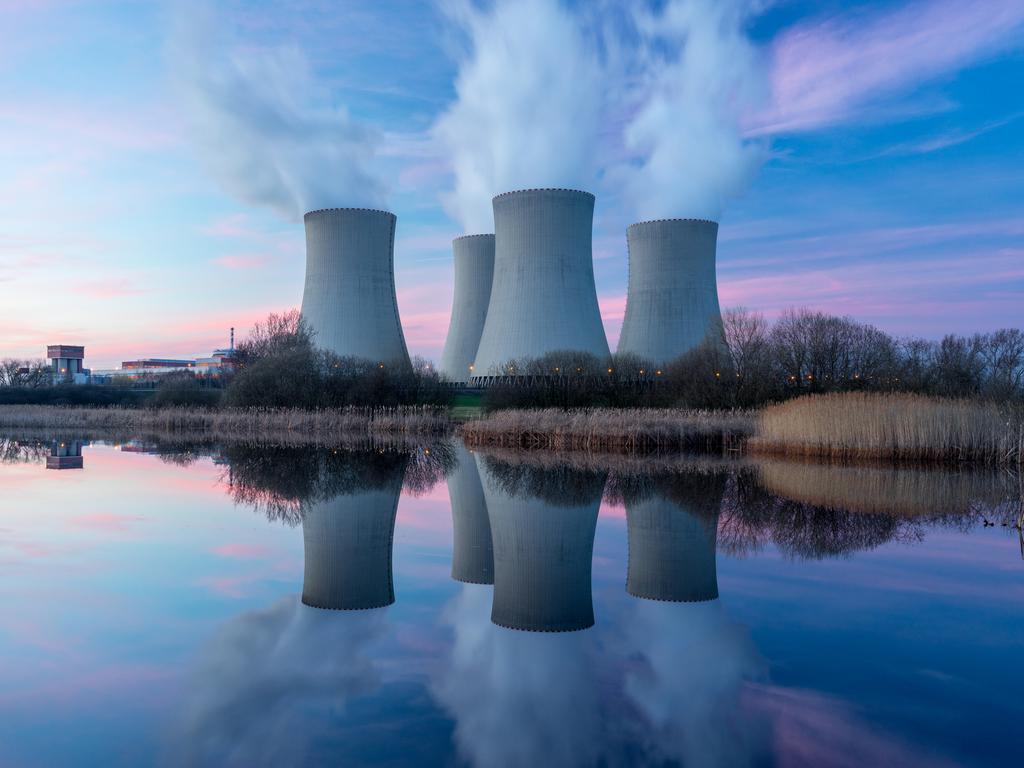
As the difficulty intensifies around getting to net zero and keeping rising temperatures within the 1.5C limit, investors will reassess nuclear – but the idea that conservative politics in Australia will stage a glorious resurgent battle that culminates in nuclear power is yet another grand fantasy.
Civil nuclear power in Australia would be an intergenerational, whole-of-government project that would require long-run political bipartisanship to underwrite investment security with legislative and regulatory backing.
It would never be established amid an energy policy war between Coalition and Labor.
The notion advanced by some advocates that Scott Morrison should take a nuclear industry proposal to the 2022 election would be an act of electoral madness and court political suicide. Morrison has enough problems at present without gifting Labor the perfect scare campaign on an issue that has no policy or political saliency.
Can you imagine the media frenzy? The invoking of Chernobyl and the biggest scare since WorkChoices? Every Coalition MP would be quizzed by Labor and the media on whether they would accept a nuclear power plant in their electorate. The issue would divide the Coalition side, unite Labor, distract from Morrison’s re-election campaign on the economy and create a destructive sideshow.
It would undermine, perhaps fatally, Morrison’s national security achievement, the nuclear submarine fleet as authorised by the AUKUS agreement. As Morrison has explained, he proceeded only because technical advice said it could be delivered short of a civil nuclear industry.
Anthony Albanese’s support for the AUKUS agreement is based on three conditions – one of them being bipartisan rejection of a nuclear industry. Anybody who thinks this is a trifling detail doesn’t comprehend what happened. Any Morrison backflip would risk blowing up his submarine deal.
People unaware of the politics of nuclear power should consult former South Australia ALP premier Jay Weatherill, who, worried about his state’s future, set up a royal commission on nuclear power and then pushed for a nuclear waste industry for the state.
The final report in May 2016 said a waste industry could deliver “significant” economic benefits estimated at $100bn. It found that a nuclear power plant for South Australia would “not be commercially viable”. Given the future debate about technologies to reduce greenhouse gas emissions, it recommended the state seek the removal of the federal law banning nuclear power in Australia.
The royal commission emphasised the importance of a “social contract” for any nuclear proposal and said bipartisanship was “essential”. This point was proved when Weatherill had to abandon the nuclear waste venture after a citizens’ jury rejected it and bipartisanship was denied by the Liberals.
Weatherill opened the debate but the answer was “no”. It was also “no” when Bob Hawke almost a decade ago backed a nuclear waste industry. There is no sign Labor will modify, let alone abandon, its entrenched rejection of all things nuclear.
A few weeks ago, opposition climate change and energy spokesman Chris Bowen told Sky News the economics “don’t stack up” for nuclear in Australia. Completely dismissive, Bowen said it was an “open and shut” case that nuclear is “the most expensive form of energy”. Indeed, as the cost of renewables has fallen, Labor’s argument against nuclear seems even stronger. Albanese, a longtime opponent of nuclear power, has no intention of modifying his position and, critically, feels under no pressure to do so. The popular pull of renewables in Australia’s suburbs only reinforces Labor’s anti-nuclear neuralgia.
The formal ALP platform envisages Australia as a “renewable energy superpower”. Nuclear has no role. Labor remains opposed to “the establishment of nuclear power plants and all other stages of the nuclear fuel cycle in Australia”. Labor is “strongly opposed” to importation of nuclear waste to create a storage industry in this country. It backs an aggressive foreign policy to uphold the Nuclear Non-Proliferation Treaty.
Nuclear now provides 10 per cent of global energy demand and that will increase. Its appeal lies in carbon-free baseload power. Right-wing parties keen to seize the political initiative on climate will push nuclear against the left, arguing this is the only guaranteed road to net zero at 2050. But nuclear plant construction remains poor in advanced OECD nations, the main reason being not safety but its weak business case.
Energy Minister Angus Taylor highlights the pioneering of small modular nuclear reactors as a coming phase but none has so far been built in developed nations. In Taylor’s “technology not taxation” agenda, nuclear does not feature.
Ziggy Switkowski, head of the Howard government’s nuclear power review, told a parliamentary inquiry in 2019 the financial window for large-scale nuclear plants had closed. It would take another decade to decide whether the smaller reactors had a viable future. He said over the past decade nuclear power “has become more expensive rather than less expensive”.
Opinion polls suggesting more people back nuclear or are open-minded miss the point – the option is financially dubious, it has no “social licence”, it gifts progressives a battle they would love, and it creates a losing distraction for the government with no policy benefits.
Nuclear power is outlawed in Australia under laws passed in 1998 and 1999, an irrational situation since energy decisions should be based on open assessment not prejudiced veto.
The pro-nuclear conservative lobby is justified railing against this law. Its problem, however, is the way it pursues this debate – it sees nuclear power as a way of consolidating the conservative base, deepening differences with Labor and challenging the left’s fixation on renewables.
This is completely delusional. An impatient Morrison nailed the issue in an interview with Sky’s Paul Murray a few weeks ago. “Right now, there’s a moratorium on nuclear power here in Australia and the Labor Party are totally opposed to it. I’m just not going to put Australia through the argument which doesn’t get us anywhere. And for the Labor Party to run around at the next election and get themselves elected on the basis of a scare campaign.”
The populist conservatives have form. Before the 2019 poll, they campaigned on the mad idea that Morrison follow Donald Trump and quit the Paris Agreement. Now they campaign on the equally mad but more dangerous idea that he seek to split the country by running on nuclear power. Why don’t they talk to the Labor Party, since its opposition guarantees no nuclear industry? As Angus Taylor said: “If we’re going to have nuclear in this country it will need to be bipartisan.”
As for those conservatives who say Morrison’s job is to fight Labor, the answer is simple. His job is to beat Labor. That’s hard enough now; vesting the Coalition with an unnecessary ideological crusade that will crash and burn only means he would have no chance.








One result of more ambitious emissions-reduction targets from the Glasgow climate conference will be rising support for nuclear power, but its champions in Australia need to start talking to the people who will decide this issue – the Labor Party, the left, and climate change progressives.